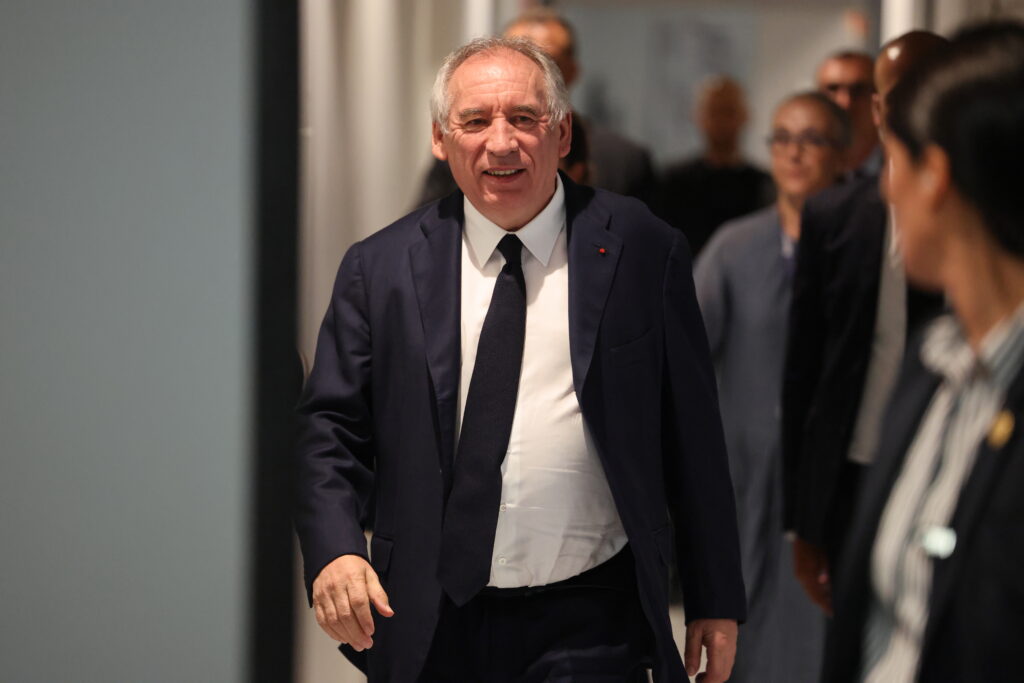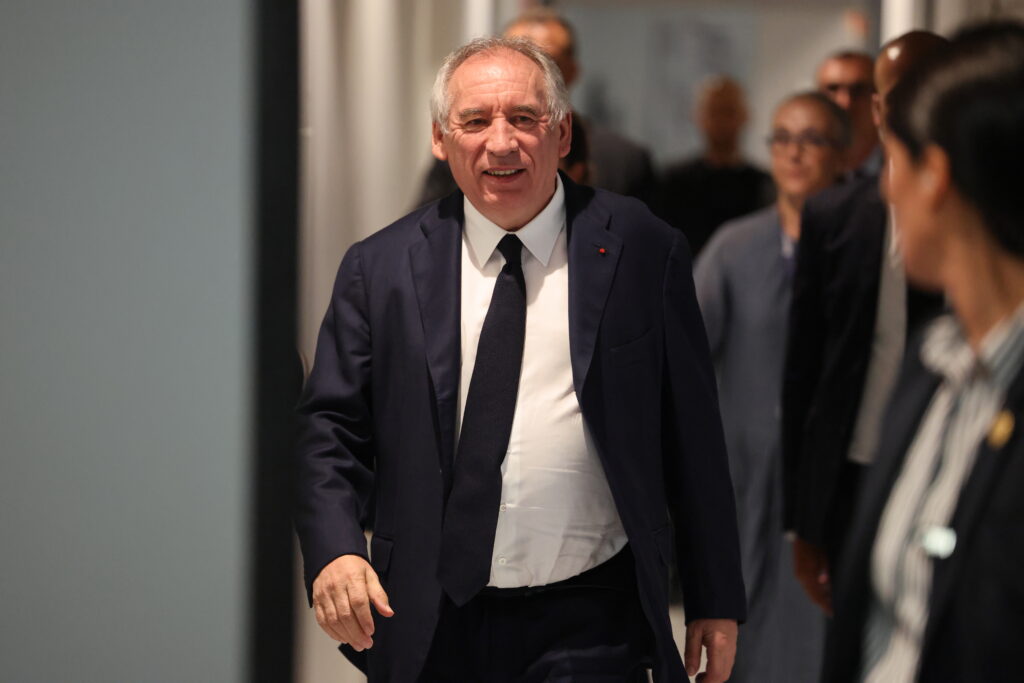Vote de confiance: Bayrou martèle son message et évoque l’après-8 septembre
François Bayrou s’est projeté vendredi dans l’après vote de confiance du 8-septembre, assurant que son objectif “aujourd’hui” n’était pas de mettre en scène sa sortie dans la perspective de 2027, tout en martelant son message sur l’état catastrophique des finances publiques. Après RMC et BFMTV jeudi matin, France 2 jeudi soir, le locataire de Matignon s’est exprimé vendredi matin sur RTL. “La politique, ce n’est pas du spectacle, Ce n’est pas une tournée d’adieu, comme vous dites. Je suis un responsable politique. Je l’étais avant d’être Premier ministre et je le resterai après”, a-t-il déclaré d’emblée à trois jours de la chute probable de son gouvernement.”La question est beaucoup plus simple. Est-ce que notre pays a mesuré la gravité de la situation devant laquelle il se trouve ? Et la situation, elle est de deux piliers, si j’ose dire. Premier pilier: la France est un pays qui ne produit pas assez. (…) La deuxième question, c’est l’endettement du pays”, a martelé le président du Mouvement démocrate (MoDem).Lundi après-midi, M. Bayrou engagera la responsabilité de son gouvernement sur une déclaration de politique générale portant sur le “constat” de l’endettement et l’ampleur du remède à administrer dans les budgets 2026.Sa chute semble inéluctable: la gauche, l’extrême droite, la majorité du petit groupe indépendant Liot et quelques députés LR ont promis de ne pas voter la confiance. Cette sortie quasi-programmée de Matignon, un premier acte vers l’Élysée ? “Je serai là en 2027 mais ça ne veut pas dire candidat à l’élection présidentielle. Ca n’est pas dans mon objectif aujourd’hui”, a assuré François Bayrou.”C’est toujours possible”, a-t-il cependant ajouté. Mais “ça n’est pas mon plan”. “Je ne fais pas ça pour obtenir quelque chose qui serait une manière de préparer un autre acte”.”Ce que j’ai fait, en prenant ce risque, en effet inédit, c’est de montrer que c’est tellement important que je n’hésite pas à mettre en jeu les responsabilités qui sont les miennes”, a-t-il ajouté.Sans parvenir à convaincre les oppositions, M. Bayrou poursuit son offensive médiatique: il sera l’invité de France 5 samedi à 19h00, puis du média en ligne Brut dimanche à 12h00. Il achève ses consultations des chefs de partis politique vendredi après-midi par la réception de la présidente par intérim du Parti radical, Nathalie Delattre.-Le RN prompt à censurer-Dès jeudi soir, François Bayrou a commencé à évoquer le scénario du renversement de son gouvernement. Qui pour lui succéder à Matignon en cas de chute ? “Je pense que c’est extrêmement difficile”, a-t-il répondu vendredi.Le Premier ministre a laissé entendre qu’il pourrait rester quelques temps à Matignon pour expédier les affaires courantes. “Il n’y a jamais d’interruption du gouvernement en France. Et donc oui, je remplirai ma mission avec tout ce que j’ai de conscience et de volonté de préserver les choses, et je serai là pour aider mon pays”, a-t-il dit.Interrogé sur l’hypothèse d’une démission d’Emmanuel Macron, réclamée par le Rassemblement national, LFI et même par certains responsables de la droite -Jean-François Copé, Valérie Pécresse, David Lisnard-, François Bayrou estime que “quand quelqu’un est élu, son devoir, sa mission et son honneur est d’aller au bout de son mandat”.Mais le RN promet d’ores et déjà de maintenir la pression sur l’exécutif.”Tout gouvernement qui continue la politique de M. Macron ou celle de M. Bayrou, c’est la même, ou celle (du premier secrétaire du PS, Olivier) Faure, parce qu’elle y ressemblera beaucoup, sera censuré par le Rassemblement national”, qui souhaite une nouvelle dissolution de l’Assemblée, a déclaré le président délégué du groupe RN, Jean-Philippe Tanguy, vendredi sur TF1.Reçus jeudi par François Bayrou, les socialistes poursuivent leur campagne pour Matignon, encouragés par le souhait d’Emmanuel Macron que le “socle commun” (Renaissance, MoDem, Horizons, LR) travaille à un compromis avec le parti à la rose.”Ce serait éventuellement envisageable si le PS disait +je renverse l’alliance et je gouverne avec le bloc central+”, avance un proche de Macron, qui reconnaît toutefois que le président reste muet sur ses intentions.Les socialistes ont reçu les assurances de Laurent Wauquiez, président du groupe Les Républicains (LR) à l’Assemblée, qui n’entend censurer a priori ni un gouvernement PS, ni un gouvernement RN. Une déclaration qui a suscité un certain émoi à droite.









